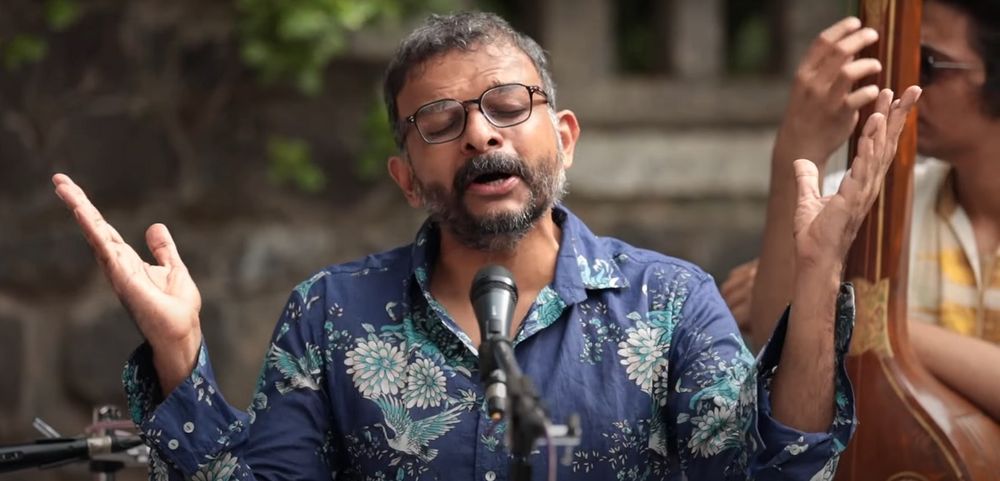A Carnatic concert by TM Krishna featuring select works of the Kerala social reformer strikes a chord on the state’s foundation day.
Classical musician TM Krishna highlighted the lofty messages of Sree Narayana Guru on universal brotherhood by presenting select verses of the social reformer, yet again proving the capabilities of Carnatic system to incorporate novelty in literature and techniques.
Sung on November 1 which is the 65th formation day of Kerala, the 30-minute concert on Kairali TV was organised as an initiative of the media channel and Nool Archives, which seeks to share memories in celebration.
Krishna hailed the Guru, who is known for a calmly determined fight against casteism in his native Kerala all his life (1855-1928). “Kerala presents to India a society with thoughts that transcend caste and religion. Sree Narayana Guru’s contribution to that concept is immense,” he said in Malayalam as a prelude to the programme. “I take Kerala Piravi (the state’s foundation day) as an occasion to sing for you select verses of the Guru.”
Presenting a string of compositions in the show named ‘Aazhiyum Thirayum’ (The Ocean and the Waves), the 44-year-old artiste was accompanied by a young team. Akkarai Subhalakshmi played the violin, along with K Arun Prakash (mridangam) and Anirudh Athreya (ganjira), besides Aditya Narayanan and Vignesh Krishnamurthy on the vocals.
“The guru’s verses are inherently musical. They follow a meter and have a flow that can express as songs. Each of the lines naturally lead you through the corridors of melody and rhythm,” said Krishna, whose Carnatic masters include yesteryear titans Semmangudi Srinivasa Iyer, Chingelpet Ranganathan and Bhagavathula Seetharama Sharma.
Krishna delineated lines from some of the Guru’s 45 works, the most vital among them being Atmopadesa Śatakam (One hundred verses of self-instruction) and Daiva Dasakam (Ten verses to God).
Chennaiite Krishna, an activist-author who won the Ramon Magsaysay award in 2016, had last year embarked on a similar mission on this day. That concert in Mumbai as part of the Kerala Formation Day marked the first-ever full-fledged kacheri that solely featured verses of the Guru.
Ongoing efforts
Music scholar-researcher S Gopalakrishnan notes that Krishna keeps working to get the pronunciations right, more so when it comes to the Malayalam words. The other languages in the guru’s works are Sanskrit and Tamil. Krishna has been, since November 1, 2019, rendering Guru’s verses as kritis at several of his concerts across the country.
Artist Riyas Komu, who was instrumental in setting up Nool Archives, finds the popularisation of Guru’s thoughts on concert platforms as a “significant step towards recovering mystic traditions.” Krishna’s endeavour can boost the country’s collective consciousness that has been waning of late, he adds.
Guru, who was born into a backward Ezhava family in Chempazhanthy village near Thiruvananthapuram, experienced the travails of untouchability that was rampant within the Hindu community of the erstwhile Travancore and Kochi kingdoms besides Malabar further north. He spearheaded a non-violent movement to eliminate the social menace.
Simultaneously, the guru propagated the non-dualistic ideology of 8th-century Advaita philosopher Adi Shankaracharya. Oru jaathi, oru matham, oru daivam manushyanu (One caste, one religion, one god for all) was the Guru’s best-known motto.

